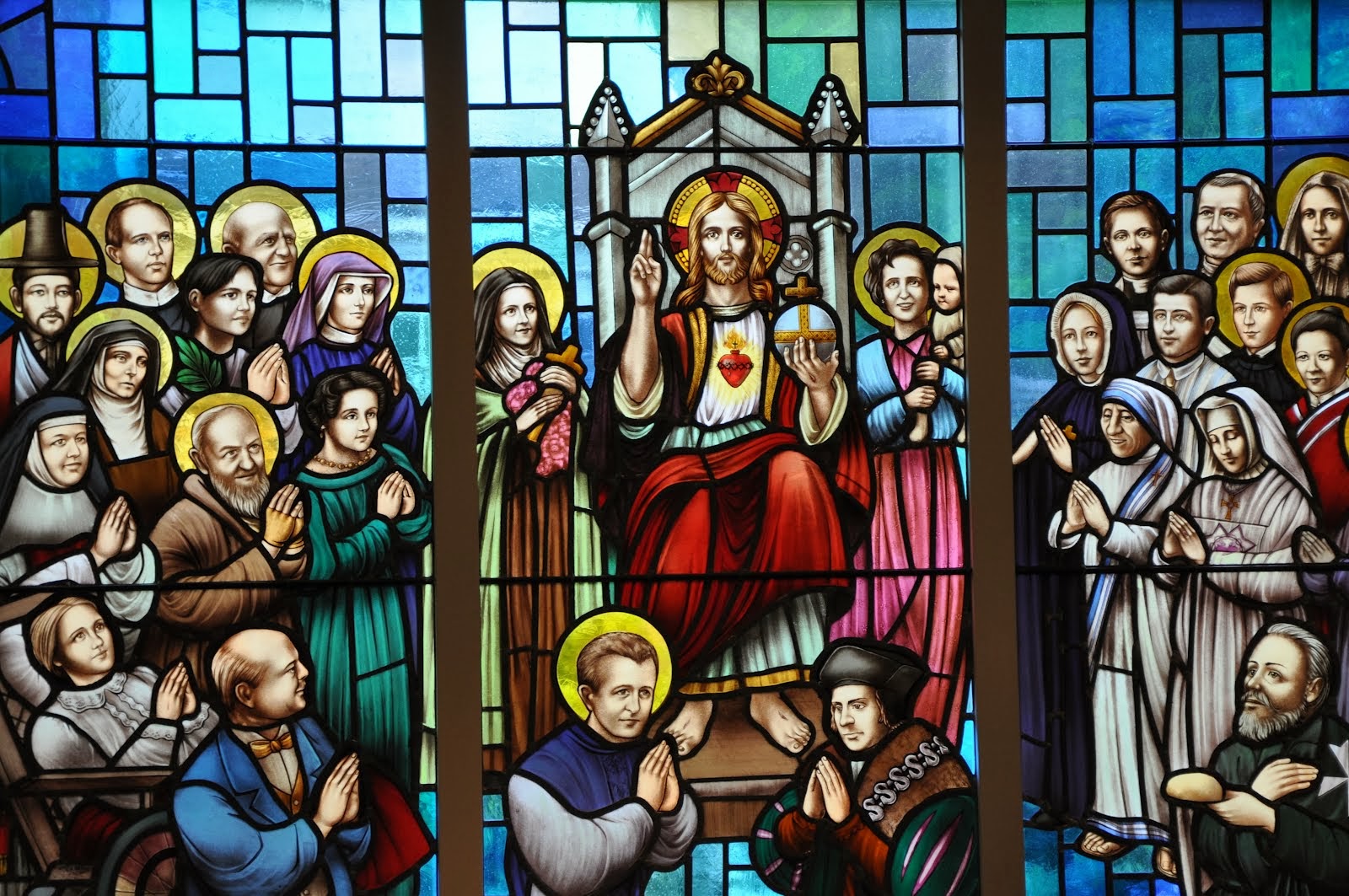
“When we stand praying, beloved brethren, we ought to be watchful and earnest with our whole heart, intent on our prayers. Let all carnal and worldly thoughts pass away, nor let the soul at that time think on anything but the object only of its prayer. For this reason also the priest by the way of preface before his prayer, prepares the minds of the brethren by saying, Lift up your hearts, that so upon the people’s response, We have them before our Lord, he may be reminded that he himself ought to think of nothing but our Lord.” St. Cyprian of Carthage (2nd-3rd centuries)
“We make mention also of the seraphim, whom Isaiah, in the Holy Spirit, saw standing around the throne of God, each with two wings veiling his face, while with two he covered his feet, and with two he flew, crying, ‘Holy, holy, holy is the Lord of Hosts’. We recite this confession, delivered to us from the seraphim, so that we may join the armies of the world above in their hymn of praise.” St. Cyril of Jerusalem (4th century, Doctor of the Church)
“Awesome is the altar on which the divine Victim is immolated! From paradise there went forth a spring whose visible waters spread out on every side. From this Table, it is a spring of spiritual waters that gush forth.” St. John Chrysostom (4th-5th centuries, Doctor of the Church)
“There is an invisible and heavenly altar, which the unjust can never approach. No one comes to that heavenly altar, but he who comes to this altar with care.” St. Augustine of Hippo (4th-5th centuries, Doctor of the Church)
“The deacon goes in procession preceded by two candle bearers and a cross-bearer. The two candles signify the light of knowledge and the light of virtue, which make it possible to see what is contained in the Gospel.” St. Albert the Great (13th century, Doctor of the Church)
“The King does not come alone. The holy angels are at the altar in Christ’s company, singing, ‘The bread of angels becomes the bread of men’.” St. Vincent Ferrer (14th-15th centuries)
“Incense is used because of the likeness that it has to prayer. So it is said in the psalm, Let my prayer be directed as incense in Thy sight. It is also used to represent the glory of God, for in the Old Testament He often showed Himself in a cloud.” St Robert Bellarmine (16th-17th centuries, Doctor of the Church)
“Make the sign of the cross on your forehead and mouth and heart, and say, ‘May God be in my heart and on my lips, that I may worthily receive His holy Gospel.” St. Francis de Sales (16th-17th centuries, Doctor of the Church)
“The Mass causes the historically past events of His life to emerge here and now in their eternal reality. Here there is no subjective recollection, but the re-emerging of Christ’s Death and Resurrection into our contemporaneous situation. The Lord opens the bridge between the eternal and the temporal; that which was past is resummoned for active operation here and now.” Ven. Fulton Sheen (19th-20th centuries)
“’Were you able to celebrate the Eucharist in prison?’ is one question that many people have asked me…The faithful sent a little bottle of wine for Mass, which they labeled ‘stomach medicine,’ as well as some hosts sealed in a flashlight…I will never be able to express my immense joy: every day, with three drops of wine and one drop of water in the palm of my hand, I celebrated my Mass. It depended on the situation, however. On the boat that brought us north, I celebrated at night with the prisoners who received Communion around me…in the reeducation camp, the prisoners were divided into groups of fifty; we slept on common beds and everyone had the right to fifty centimeters [about 20 inches] of space. We arranged it so that there were five Catholics near me. At 9:30 p.m. the lights were turned off and everyone had to sleep. I curled up on the bed to celebrate Mass, from memory…We made small containers…to reserve the Blessed Sacrament. Jesus in the Eucharist was always with me…At night, the prisoners took turns for Adoration; Jesus helped us in a tremendous way with His silent presence. Many Christians regained the fervor of their faith during those days, and Buddhists and other non-Christians converted. The strength of Jesus’ love is irresistible. The darkness of prison became light, the seed germinated underground during the storm.” Ven. Francis Xavier Nguyen Van Thuan (20th-21st centuries)
